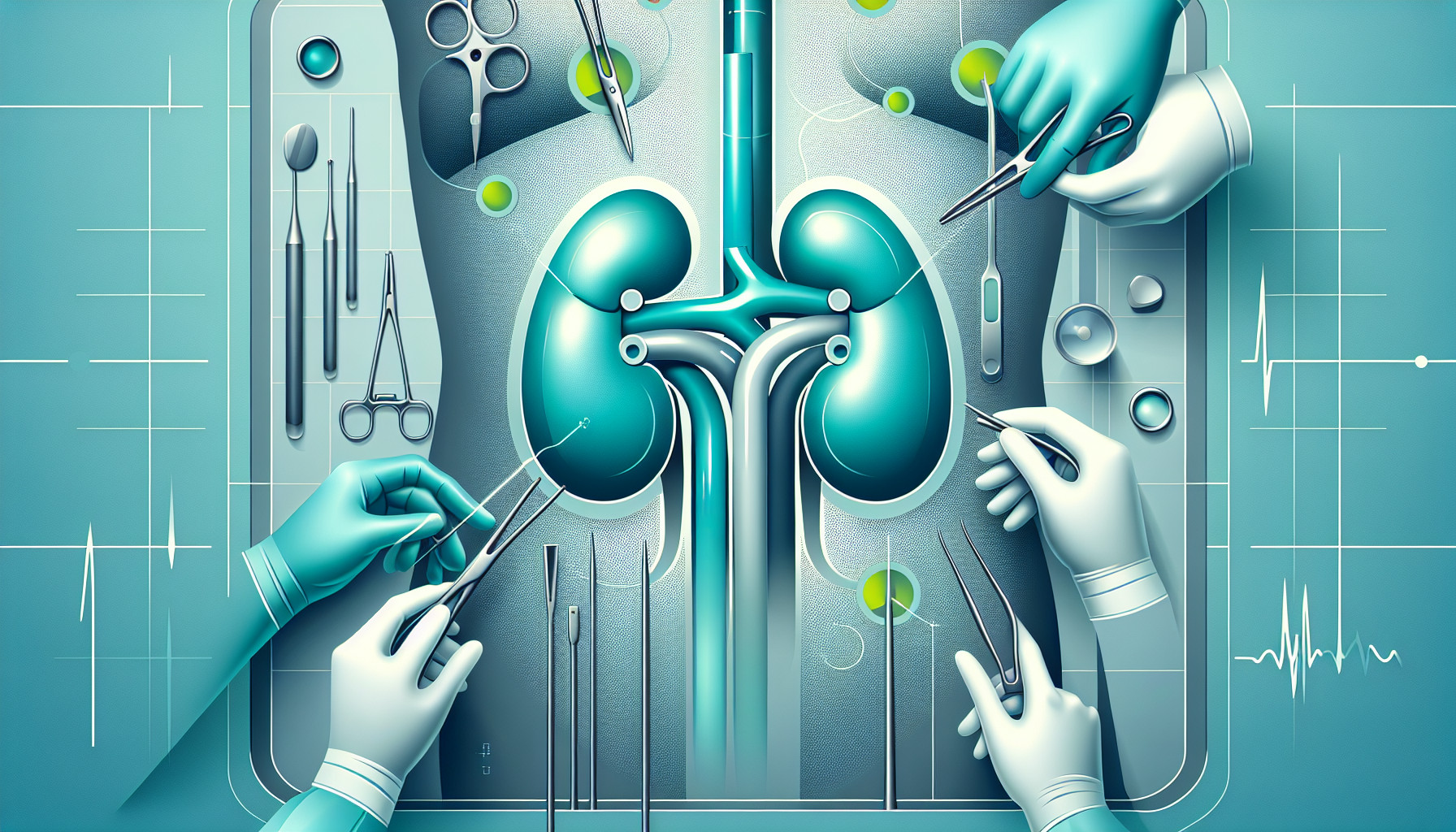Our Summary
The research paper explores the high prevalence of sleep-related disorders in people with chronic kidney disease (CKD) and those who have had a kidney transplant. These sleep disorders can include insomnia, sleep-disordered breathing, restless legs syndrome, and excessive daytime sleepiness among others. Some patients see an improvement in their sleep disorders after a kidney transplant, while others continue to struggle with them, or even develop new ones.
Kidney transplant recipients are particularly unique due to their specific circumstances such as having only one kidney, the use of drugs to suppress their immune system, and dealing with other health conditions like obesity, cardiovascular disease, cancer, and the fear of losing their transplanted kidney.
All these factors increase the risk of sleep disorders. Furthermore, there is a bidirectional relationship between CKD and sleep disorders - each can increase the risk of the other.
Obstructive sleep apnea (OSA) is a common sleep disorder, which can change kidney function. OSA can lead to low levels of oxygen while sleeping and interrupted sleep, which triggers the nervous system and impacts the cardiovascular system.
The study highlights the importance of screening and managing sleep disorders in patients with kidney transplants as these disorders could have harmful effects on the transplanted kidney and the patient’s overall survival.
FAQs
- What types of sleep disorders are common in individuals with chronic kidney disease and those who have had a kidney transplant?
- How does obstructive sleep apnea affect kidney function in individuals who have had a kidney transplant?
- Why is it important to screen and manage sleep disorders in patients with kidney transplants?
Doctor’s Tip
One helpful tip a doctor might tell a patient about kidney transplant is to prioritize good sleep hygiene. This includes maintaining a consistent sleep schedule, creating a comfortable sleep environment, avoiding caffeine and electronic devices before bed, and practicing relaxation techniques to help improve sleep quality. Additionally, patients should communicate any sleep concerns or difficulties to their healthcare team so that appropriate interventions can be implemented to optimize their overall health and well-being post-transplant.
Suitable For
Patients who are typically recommended for a kidney transplant are those with end-stage renal disease (ESRD) or advanced chronic kidney disease (CKD) who have exhausted other treatment options such as dialysis. These patients may have conditions such as diabetes, hypertension, glomerulonephritis, polycystic kidney disease, or autoimmune diseases that have led to kidney failure. Candidates for kidney transplant should be in good overall health, have a suitable donor, and be willing to commit to the necessary post-transplant care and medications.
Timeline
- Diagnosis of chronic kidney disease (CKD) and progression to end-stage renal disease (ESRD)
- Evaluation for kidney transplant eligibility
- Placement on the kidney transplant waiting list
- Pre-transplant evaluations and tests
- Identification of a suitable donor (living or deceased)
- Kidney transplant surgery
- Recovery period in the hospital
- Post-transplant care and monitoring, including taking immunosuppressant medications
- Potential improvement in kidney function and overall health
- Potential development or exacerbation of sleep-related disorders
- Screening and management of sleep disorders post-transplant
- Long-term follow-up care to monitor kidney function and overall health
Overall, the timeline for a kidney transplant patient involves a complex process of diagnosis, evaluation, surgery, recovery, and long-term care. It is important for healthcare providers to address the potential impact of sleep disorders on kidney transplant recipients and provide appropriate support and interventions to improve their overall quality of life and health outcomes.
What to Ask Your Doctor
Some questions a patient should ask their doctor about kidney transplant and sleep disorders include:
- How common are sleep disorders in kidney transplant recipients?
- What are the potential causes of sleep disorders in kidney transplant recipients?
- How can sleep disorders impact my transplanted kidney and overall health?
- What are the symptoms of sleep disorders that I should be aware of?
- Are there any specific risk factors for developing sleep disorders after a kidney transplant?
- How can sleep disorders be diagnosed and treated in kidney transplant recipients?
- Are there any lifestyle changes or medications that can help improve sleep quality?
- Will my immunosuppressant medications affect my sleep quality?
- Are there any specific precautions I should take to prevent or manage sleep disorders after a kidney transplant?
- Should I see a sleep specialist for further evaluation and treatment of sleep disorders?
Reference
Authors: Parajuli S, Tiwari R, Clark DF, Mandelbrot DA, Djamali A, Casey K. Journal: Transplant Rev (Orlando). 2019 Jan;33(1):9-16. doi: 10.1016/j.trre.2018.09.002. Epub 2018 Sep 26. PMID: 30287137
